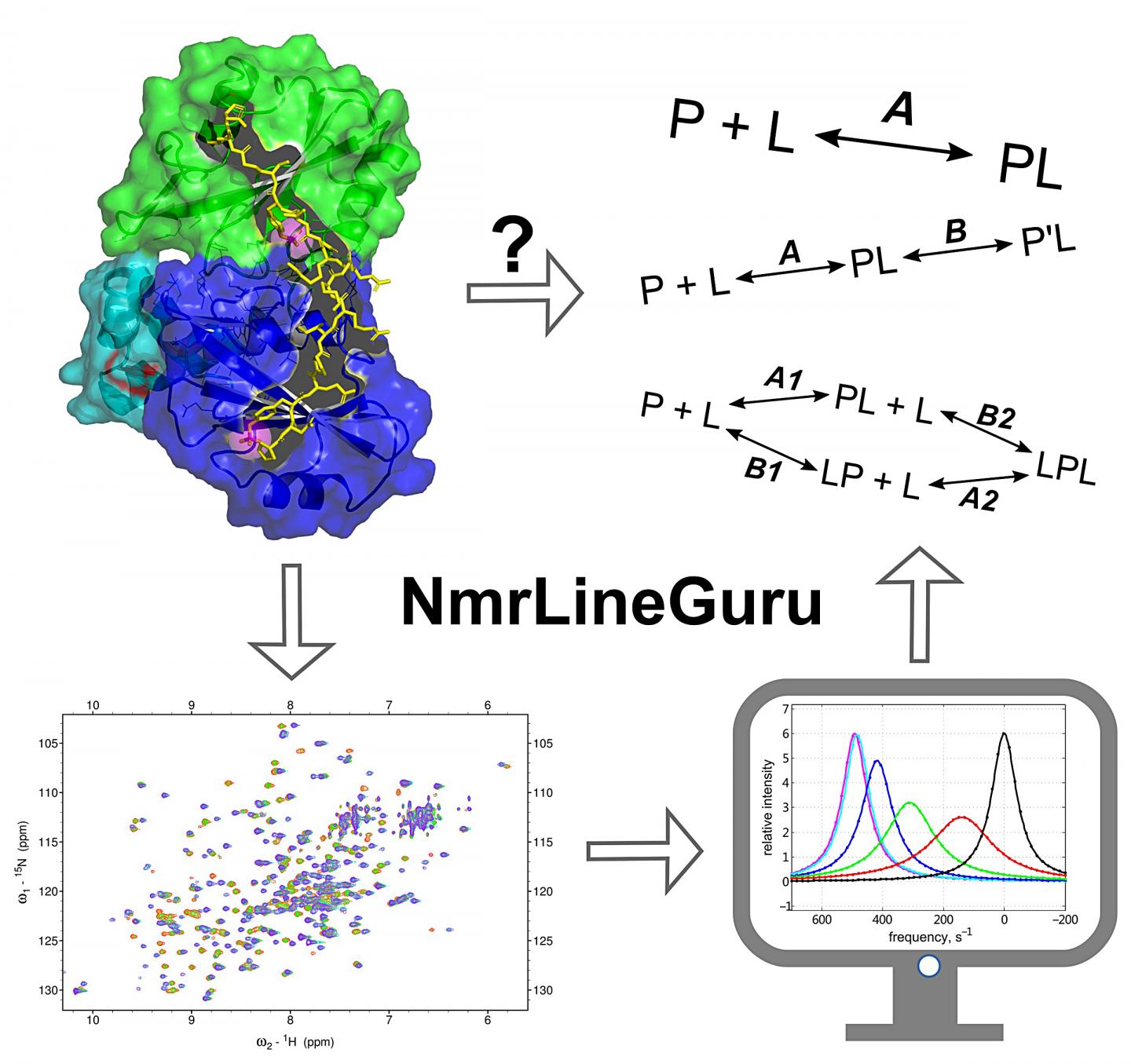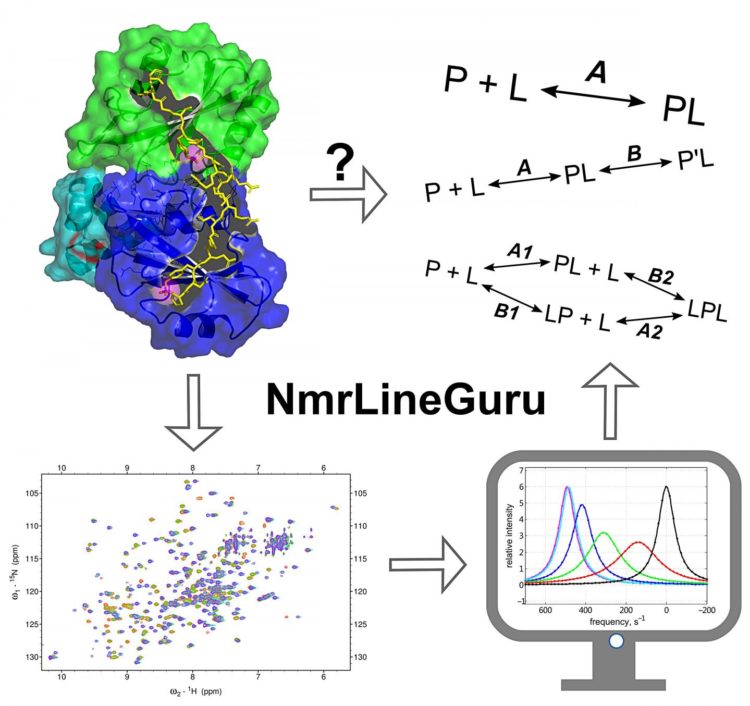
Credit: Purdue University/Chao Feng
WEST LAFAYETTE, Ind. – What if scientists could create more effective drugs to treat cancers and other diseases by better targeting specific sites on proteins in the body?
That’s the primary question researchers in the Purdue University laboratory of Carol Post, a distinguished professor in Purdue’s College of Pharmacy, are trying to answer. They have developed software called NmrLineGuru to move researchers closer to the answer. Their work is published in the Nov. 5 edition of Scientific Reports.
Chao Feng, a postdoctoral researcher in Post’s lab, who helped lead the research team, said, “We created software for fast 1D nuclear magnetic resonance lineshape simulation and analysis with multistate equilibrium binding models. It enables researchers and scientists to study much more specific information about proteins that are linked to serious diseases to help in the drug discovery process.”
Proteins play a crucial role in the growth of cancer in the body by stimulating molecules responsible for tumor growth. The graphical user interface software developed at Purdue can help researchers quickly understand, through simulated models, how certain proteins bind with other molecules in the body.
“Our work stems from a deep understanding of the need in the drug discovery field for better and faster solutions to understand biological functions of proteins and molecules in the body,” Feng said.
The Purdue software supports the most common two-, three-, and four-state binding models used in the drug discovery industry to study such interactions between the proteins involved in a disease state and the molecules that bind to them. The software takes the information submitted by the user and creates specific model information about protein interactions.
###
The team has been working with the Purdue Research Foundation Office of Technology Commercialization, which supports commercializing, licensing and protecting Purdue intellectual property. For more information on licensing a Purdue innovation, contact the Office of Technology Commercialization at [email protected].
About Purdue Research Foundation Office of Technology Commercialization
The Purdue Research Foundation Office of Technology Commercialization operates one of the most comprehensive technology transfer programs among leading research universities in the U.S. Services provided by this office support the economic development initiatives of Purdue University and benefit the university’s academic activities through commercializing, licensing and protecting Purdue intellectual property. Contact the Office of Technology Commercialization at [email protected]. The foundation received the 2019 Innovation and Economic Prosperity Universities Award for Place from the Association of Public and Land-grant Universities. The Purdue Research Foundation is a private, nonprofit foundation created to advance the mission of Purdue University.
Writer: Chris Adam, 765-588-3341, [email protected]
Source: Chao Feng, [email protected]
Media Contact
Chris Adam
[email protected]
Original Source
https:/
Related Journal Article
http://dx.





